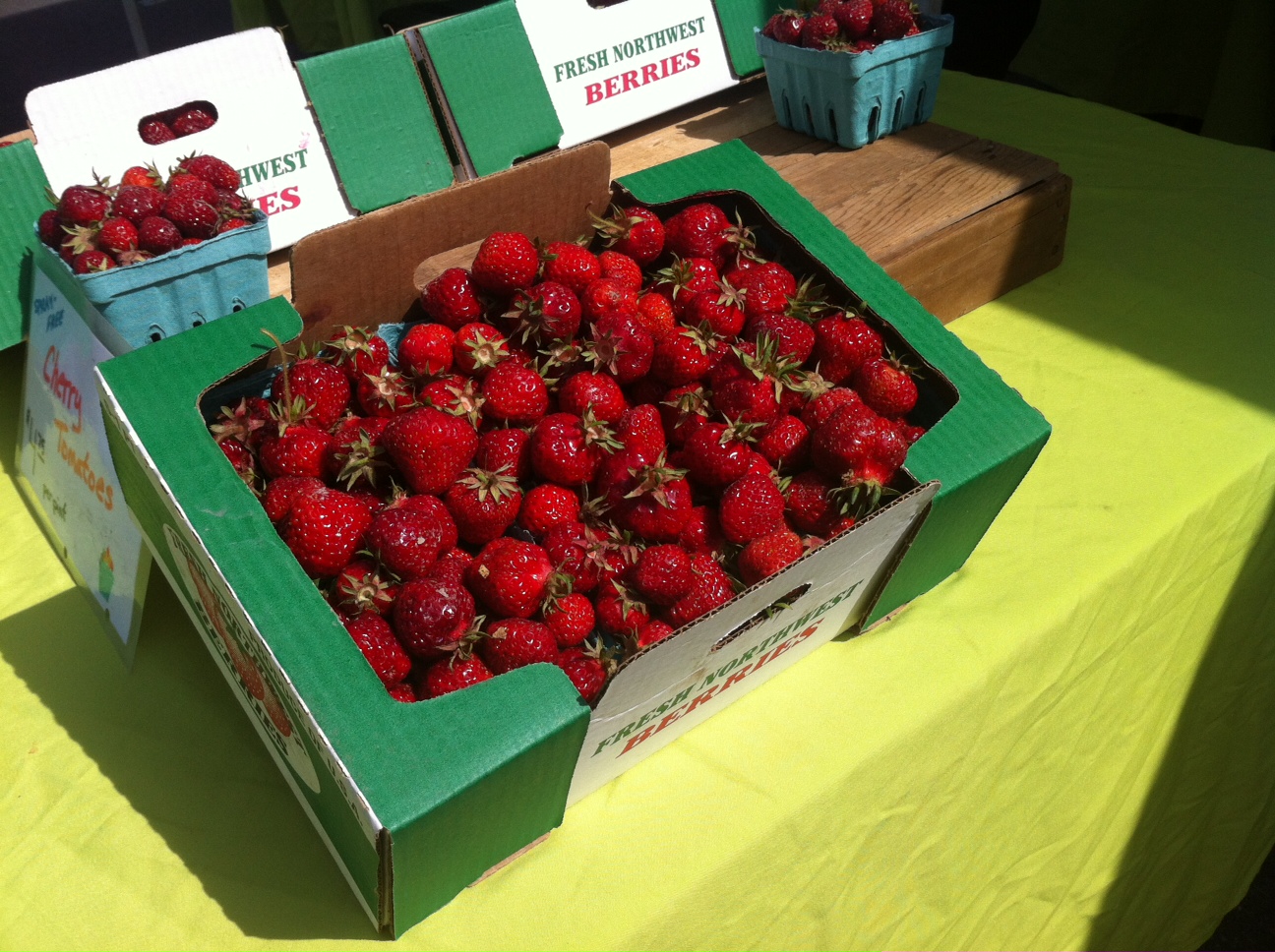Ah--it's that delightful time of year when we overflow with berries and cherries and all the good vegetables start coming in, week by week.
 Not only have I been buying berries from different farmers each week, depending on which look the most luscious that day, but I've been chatting with other farmers (who don't grow berries) about which ones they've been sampling. All those choices! Will I get around to everyone before the window closes?
Not only have I been buying berries from different farmers each week, depending on which look the most luscious that day, but I've been chatting with other farmers (who don't grow berries) about which ones they've been sampling. All those choices! Will I get around to everyone before the window closes?
Some of you, I know, search out and stick with produce grown and labelled "Organic." And why not? Nobody wants to add a serving of pesticides to the chemicals we're already marinating in, from the plastic containers holding our food to the shampoos we use to the synthetic and treated fibers we wear. Like good politicians wrestling with a toxic budget, we try to make cuts where we can. So I'm certainly not knocking organic.
And I've posted before the Environmental Working Group's Dirty Dozen, foods that are conventionally grown with bigger doses of pesticides:

That list is the reason I buy organic for those items when I'm in the grocery store. (In the interest of fairness, I should quote the industry response, as summarized in this CBS article:
The Alliance for Food and Farming (AFF) released a statement today, calling the EWG report "misleading" and questioning the scientific procedures used to develop the "Dirty Dozen" list. They also point to the USDA's Pesticide Data Program report, which states that the pesticide levels found on 99 percent of the products sampled do not pose a safety concern.)
(Note #2: also in the interest of fairness I should mention that there's a long list of approved pesticides that organic farmers may use, they just can't be derived from synthetic ingredients. Rather like the somewhat arbitrary distinction between "artificial" and "natural flavors.")
But when I'm at the Market, I'm more interested in what individual farmers do with their crops. I know getting government Certified Organic status is a lengthy, expensive process, and one not always feasible for small farms.
If you're curious, ask the farmer how they handle their crops. Are they certified organic? Are they conventional growers? or are they in the unlabeled No-Man's Land--while not certified, their produce might be "spray-free." Which method of pest control do they favor? If you're comfortable with the answer provided, you may not need specific labels on your food.
I have a friend who always thought she was allergic to celery until she figured out she was actually allergic to whatever they sprayed on celery--she could handle organic celery just fine. That makes me wonder what sort of pesticide typically gets applied to celery and what the organic equivalent is. Everybody's different and every body is different. Ask questions.
Make your peace and enjoy your produce. And remember, the kids' POP program starts this week!




